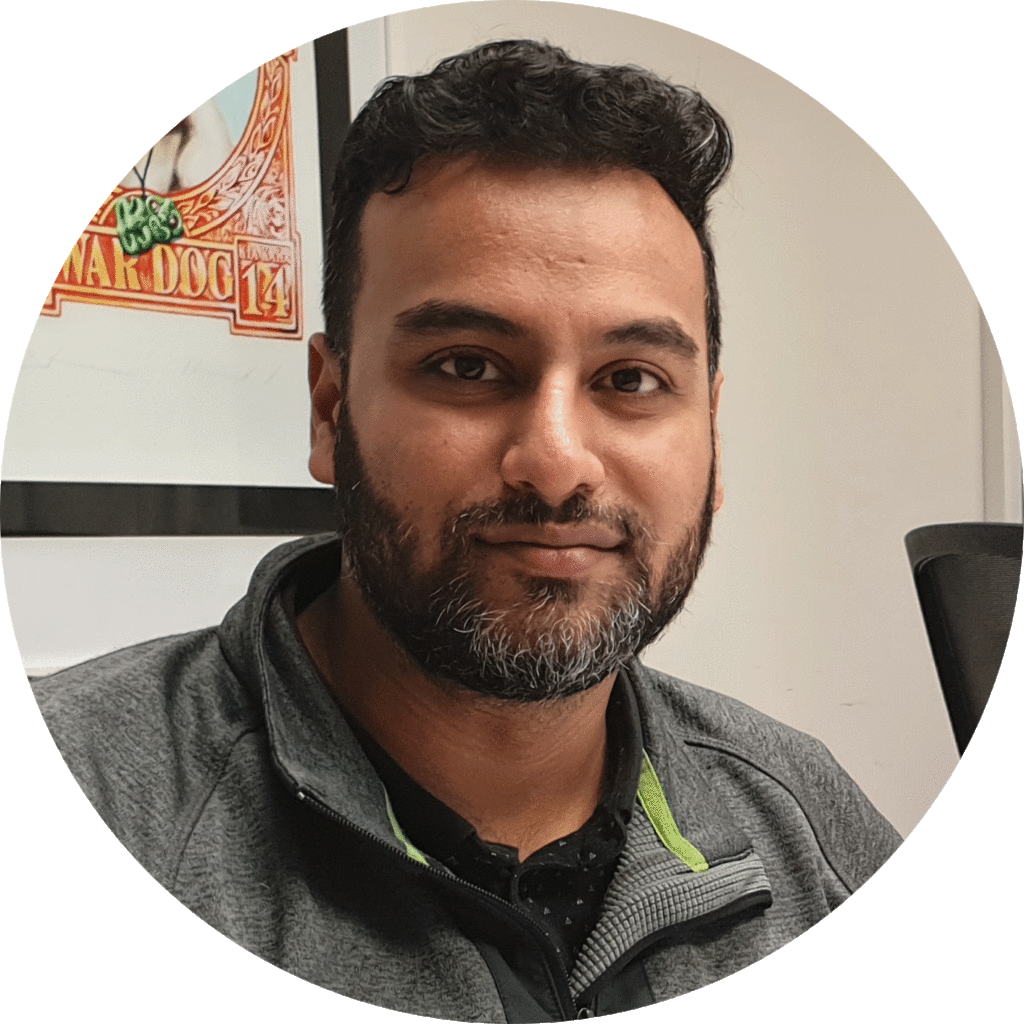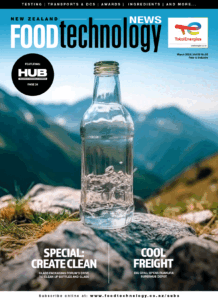 Shakeel Ahmed wants to tackle big picture problems such as food waste one innovative step at a time. Drawing on his experience in the food industry, the food scientist is working with his team to find new monitoring solutions to age-old problems.
Shakeel Ahmed wants to tackle big picture problems such as food waste one innovative step at a time. Drawing on his experience in the food industry, the food scientist is working with his team to find new monitoring solutions to age-old problems.
HS: What qualifications do you have and what motivated you to follow this career path?
SA: I have a bachelor’s degree in analytical chemistry and work experience overseas (Australia, Singapore, Hong Kong) in the food industry. Based on the experiences there, I decided to pursue an MSc program at AUT on a research project sponsored by Fisher and Paykel Appliances. I have completed projects in NPD (cyclodextrins), novel equipment design (nano-tech application) and data science (predicting shelf life in transit) in my early academic life.
My motivation to work in the food industry has always been to have an impact on reducing food waste. With food demand expected to more than double in our lifetimes and our current wastage rate is sitting at 50% of all food production, its best to focus on reducing waste to meet the growing demand.
What do you enjoy most about your job?
I love being part of an innovative team that works passionately to improve food safety and quality in New Zealand continuously. We tactically tackle big picture problems to create solutions that solve real problems on the ground level. These range from improving food safety practices, developing visibility and traceability in food production, and improving data integrity across the food and pharma industries.
It is enriching to see how the industry resonates with our IIOT monitoring, food safety, quality management and traceability solutions and how this help improves their operational efficiency and food management.
It is fun to work at the forefront of innovation that delivers solutions for the food industry to address significant issues.
What are you most looking forward to seeing happen in the f&b industry in the next five years?
Industry 4.0, combined with sophisticated software solutions, will enable the food industry to ensure end-to-end traceability along the entire supply chain. I am especially looking forward to the use of machine learning and artificial intelligence in conjunction to drive innovations in the food and beverage industry.
The hope being that it will not only reduce food waste; it will improve efficiency and practices of the food and beverage industry. Further, it will also meet the consumer’s rising demand for transparency. We will be able to close the last remaining gaps between the consumer and the farm where the ingredients originated.
What is one of your biggest professional achievements to date?
My most significant professional achievement has been the ability to put my team first and share with them the various awards and commendations I’ve received over the years. I most appreciate the people around us and advising a young company trying to make a difference from our small patch in New Zealand at various forums.

































































































